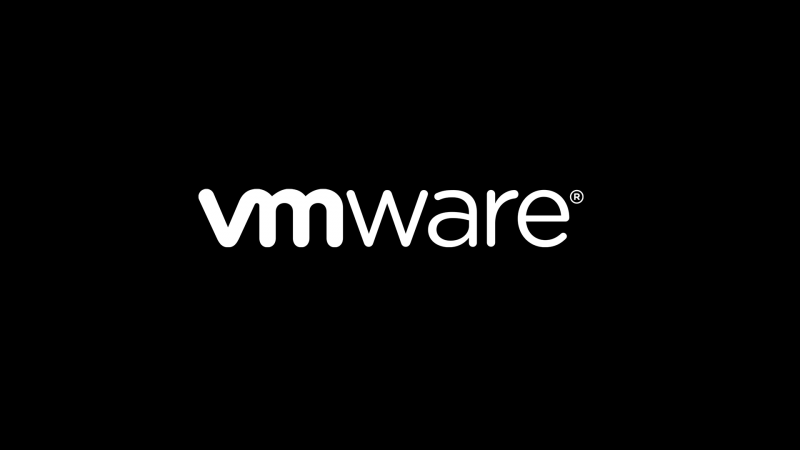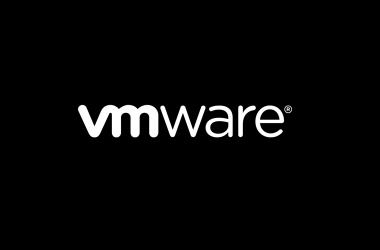Critical
VMSA-2023-0008
7.3-9.3
2023-04-25
2023-04-25 (Initial Advisory)
CVE-2023-20869, CVE-2023-20870, CVE-2023-20871, CVE-2023-20872
VMware Workstation and Fusion updates address multiple security vulnerabilities (CVE-2023-20869, CVE-2023-20870, CVE-2023-20871, CVE-2023-20872)
1. Impacted Products
- VMware Workstation Pro / Player (Workstation)
- VMware Fusion
2. Introduction
Multiple security vulnerabilities in VMware Workstation and Fusion were privately reported to VMware. Updates and workarounds are available to remediate these vulnerabilities in the affected VMware products.
3a. Stack-based buffer-overflow vulnerability in bluetooth device-sharing functionality (CVE-2023-20869)
Description
VMware Workstation and Fusion contain a stack-based buffer-overflow vulnerability that exists in the functionality for sharing host Bluetooth devices with the virtual machine. VMware has evaluated the severity of this issue to be in the Critical severity range with a maximum CVSSv3 base score of 9.3.
Known Attack Vectors
A malicious actor with local administrative privileges on a virtual machine may exploit this issue to execute code as the virtual machine’s VMX process running on the host.
Resolution
To remediate CVE-2023-20869 update to the version listed in the ‘Fixed Version’ column of the ‘Response Matrix’ found below.
Workarounds
Workarounds for CVE-2023-20869 have been listed in the ‘Workarounds’ column of the ‘Response Matrix’ below.
Additional Documentation
None.
Notes
None.
Acknowledgements
VMware would like to thank STAR Labs, working with the Pwn2Own 2023 Security Contest, for reporting this issue to us.
Response Matrix
3b. Information disclosure vulnerability in bluetooth device-sharing functionality (CVE-2023-20870)
Description
VMware Workstation and Fusion contain an out-of-bounds read vulnerability that exists in the functionality for sharing host Bluetooth devices with the virtual machine. VMware has evaluated the severity of this issue to be in the Important severity range with a maximum CVSSv3 base score of 7.1.
Known Attack Vectors
A malicious actor with local administrative privileges on a virtual machine may be able to read privileged information contained in hypervisor memory from a virtual machine.
Resolution
To remediate CVE-2023-20870 update to the version listed in the ‘Fixed Version’ column of the ‘Response Matrix’ found below.
Workarounds
Workarounds for CVE-2023-20870 have been listed in the ‘Workarounds’ column of the ‘Response Matrix’ below.
Additional Documentation
None.
Notes
None.
Acknowledgements
VMware would like to thank STAR Labs, working with the Pwn2Own 2023 Security Contest, for reporting this issue to us.
Response Matrix
3c. VMware Fusion Raw Disk local privilege escalation vulnerability (CVE-2023-20871)
Description
VMware Fusion contains a local privilege escalation vulnerability. VMware has evaluated the severity of this issue to be in the Important severity range with a maximum CVSSv3 base score of 7.3.
Known Attack Vectors
A malicious actor with read/write access to the host operating system can elevate privileges to gain root access to the host operating system.
Resolution
To remediate CVE-2023-20871 update to the version listed in the ‘Fixed Version’ column of the ‘Response Matrix’ found below.
Workarounds
None.
Additional Documentation
None.
Notes
None.
Acknowledgements
VMware would like to thank Beist, Chpie, Silenos, and Jz of LINE Security for reporting this issue to us.
Response Matrix
| Product | Version | Running On | CVE Identifier | CVSSv3 | Severity | Fixed Version | Workarounds | Additional Documentation |
Fusion | 13.x | OS X | CVE-2023-20871 | important
| 13.0.2 | None | None |
3d. Out-of-bounds read/write vulnerability (CVE-2023-20872)
Description
VMware Workstation and Fusion contain an out-of-bounds read/write vulnerability in SCSI CD/DVD device emulation. VMware has evaluated the severity of this issue to be in the Important severity range with a maximum CVSSv3 base score of 7.7.
Known Attack Vectors
A malicious attacker with access to a virtual machine that has a physical CD/DVD drive attached and configured to use a virtual SCSI controller may be able to exploit this vulnerability to execute code on the hypervisor from a virtual machine.
Resolution
To remediate CVE-2023-20872 update to the version listed in the ‘Fixed Version’ column of the ‘Response Matrix’ found below.
Workarounds
Workarounds for CVE-2023-20872 have been listed in the ‘Workarounds’ column of the ‘Response Matrix’ below.
Additional Documentation
None.
Notes
Successful exploitation of this issue requires a physical CD/DVD drive attached to the virtual machine configured to use a virtual SCSI controller.
Acknowledgements
VMware would like to thank Wenxu Yin of 360 Vulnerability Research Institute for reporting this issue to us.
Response Matrix
4. References
Fixed Version(s) and Release Notes:
VMware Fusion 13.0.2:
Downloads and Documentation:
https://customerconnect.vmware.com/downloads/info/slug/desktop_end_user_computing/vmware_fusion/13_0
https://docs.vmware.com/en/VMware-Fusion/13.0.2/rn/vmware-fusion-1302-release-notes/index.html
VMware Workstation 17.0.2:
Downloads and Documentation:
https://customerconnect.vmware.com/downloads/info/slug/desktop_end_user_computing/vmware_workstation_pro/17_0
https://docs.vmware.com/en/VMware-Workstation-Pro/17.0.2/rn/vmware-workstation-1702-pro-release-notes/index.html
Mitre CVE Dictionary Links:
https://cve.mitre.org/cgi-bin/cvename.cgi?name=CVE-2023-20869
https://cve.mitre.org/cgi-bin/cvename.cgi?name=CVE-2023-20870
https://cve.mitre.org/cgi-bin/cvename.cgi?name=CVE-2023-20871
https://cve.mitre.org/cgi-bin/cvename.cgi?name=CVE-2023-20872
FIRST CVSSv3 Calculator:
CVE-2023-20869: https://www.first.org/cvss/calculator/3.1#CVSS:3.1/AV:L/AC:L/PR:N/UI:N/S:C/C:H/I:H/A:H
CVE-2023-20870: https://www.first.org/cvss/calculator/3.1#CVSS:3.1/AV:L/AC:L/PR:N/UI:N/S:C/C:H/I:N/A:N
CVE-2023-20871: https://www.first.org/cvss/calculator/3.1#CVSS:3.1/AV:L/AC:L/PR:L/UI:N/S:U/C:H/I:L/A:H
CVE-2023-20872: https://www.first.org/cvss/calculator/3.1#CVSS:3.1/AV:L/AC:H/PR:N/UI:R/S:C/C:H/I:H/A:H
5. Change Log
2023-04-25 VMSA-2023-0008
Initial security advisory.
6. Contact
E-mail: security@vmware.com
PGP key at:
https://kb.vmware.com/kb/1055
VMware Security Advisories
https://www.vmware.com/security/advisories
VMware Security Response Policy
https://www.vmware.com/support/policies/security_response.html
VMware Lifecycle Support Phases
https://www.vmware.com/support/policies/lifecycle.html
VMware Security & Compliance Blog
https://blogs.vmware.com/security
Twitter
https://twitter.com/VMwareSRC
Copyright 2023 VMware Inc. All rights reserved.
Read full article (vmware.com)
All content and images belong to their respected owners, this article is curated for informational purposes only.






